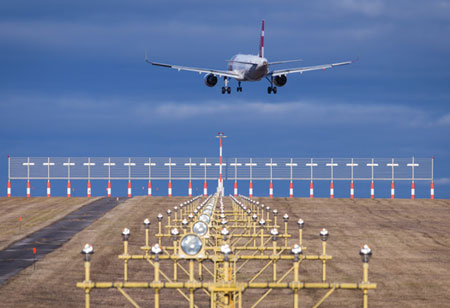
Air India, Airasia India, Vistara Sign Mou For Sustainable Aviation Fuel


CEOInsights Team, 0
The event was attended by Tata Sons' chief sustain ability officer Siddharth Sharma, Vistara's chief financial officer Niyant Maru, Air India CEO Campbell Wilson, AirAsia India MD and CEO Sunil Bhaskaran, and Dr. Anjan Ray from CSIR-IIP. Sustainable aviation fuel is made from sustainable resources, such as forestry and agricultural waste and used cooking oil and can be blended with fossil jet fuel to reduce emissions. It is a `drop-in' fuel, meaning it can be added with no changes needed to the aircraft. The concept of sustainable aviation fuel among
Indian airlines is still at a nascent stage. So far, there have been a handful of demonstration flights by SpiceJet & IndiGo on blended fuel for lower carbon emissions.
In December last year, IndiGo partnered with CSIR-IIP on sustainable aviation fuel, including work on single Reactor HEFA Technology for Drop-in liquid Sustainable aviation and Automotive Fuel (DILSAAF). The ministry of civil aviation and the ministry of petroleum and natural gas of India are also working on issuing a roadmap for sustainable aviation fuel over the next few months, officials in the know of the matter told Mint last week. This would lay the framework for lowering carbon emissions by the aviation industry.
In 2016, the International Civil Aviation Organization (ICAO)adopted a global market-based mechanism, the Carbon Offsetting and Reduction Scheme for International Aviation(CORSIA) to address CO2 emissions from international aviation. CORSIA aims to stabilize net carbon emissions from international civil aviation using offsetting programmes. Offsetting is an action by a firm or individual to compensate for their emissions by financing a reduction in emissions elsewhere.
Under this, from 2021 until 2026, only flights between states that volunteer to participate will be subject to offsetting requirements. The countries that have volunteered cover about 77percent of all international aviation activity. Beginning 2027, virtually all international flights will be subject to mandatory offsetting requirements, representing more than 90 percent of all international aviation activity. Until September 2021,107 states have volunteered to join CORSIA for 2022.
In December last year, IndiGo partnered with CSIR-IIP on sustainable aviation fuel, including work on single Reactor HEFA Technology for Drop-in liquid Sustainable aviation and Automotive Fuel (DILSAAF). The ministry of civil aviation and the ministry of petroleum and natural gas of India are also working on issuing a roadmap for sustainable aviation fuel over the next few months, officials in the know of the matter told Mint last week. This would lay the framework for lowering carbon emissions by the aviation industry.
In 2016, the International Civil Aviation Organization (ICAO)adopted a global market-based mechanism, the Carbon Offsetting and Reduction Scheme for International Aviation(CORSIA) to address CO2 emissions from international aviation. CORSIA aims to stabilize net carbon emissions from international civil aviation using offsetting programmes. Offsetting is an action by a firm or individual to compensate for their emissions by financing a reduction in emissions elsewhere.
Under this, from 2021 until 2026, only flights between states that volunteer to participate will be subject to offsetting requirements. The countries that have volunteered cover about 77percent of all international aviation activity. Beginning 2027, virtually all international flights will be subject to mandatory offsetting requirements, representing more than 90 percent of all international aviation activity. Until September 2021,107 states have volunteered to join CORSIA for 2022.